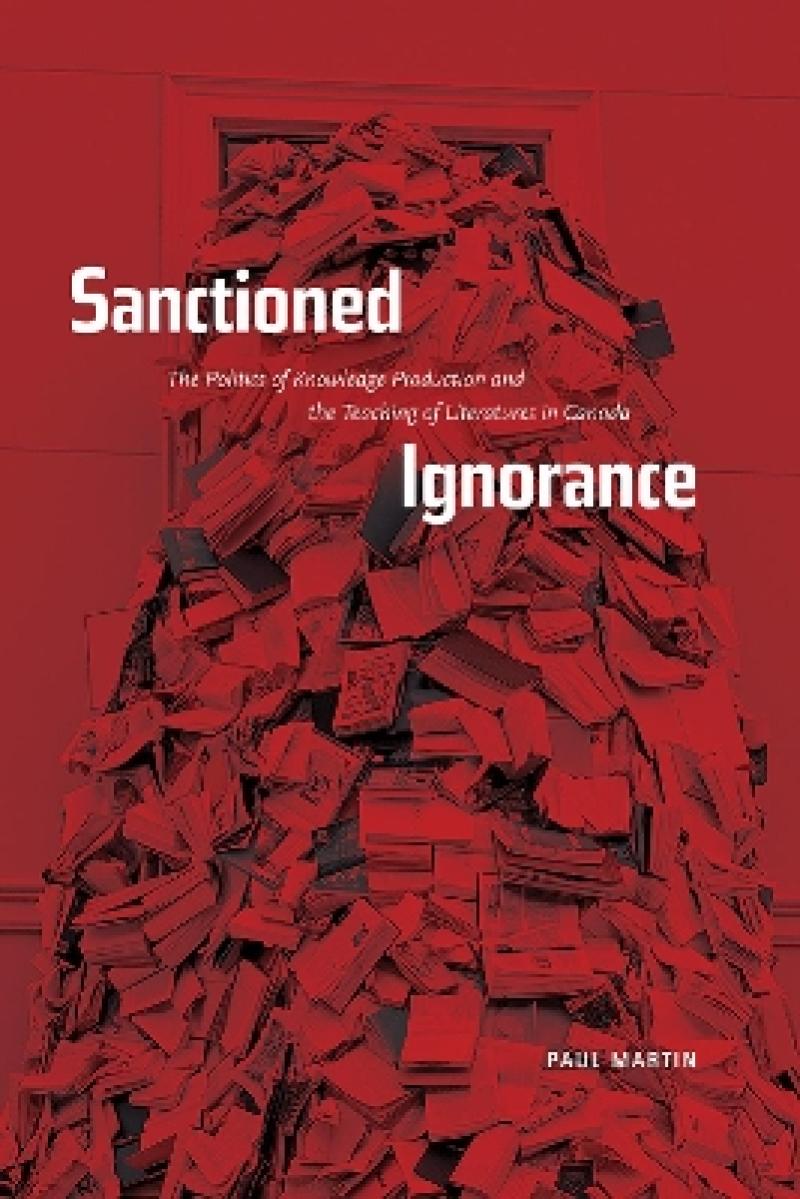When it comes to the study of Canadian literature, scholars typically write about authors or texts, or sometimes the history of a particular period. But Paul Martin has taken the unconventional step of analyzing the discipline itself.. At times engaging and disconcerting, this book reveals what Martin believes is wrong with the current post-secondary approach to teaching our nation's English-language literature.. I found it insightful and disturbing, and it made me reflect on my own book choices for my Canadian literature classes. What's more, Martin doesn't simply indicate the problem; he offers readers possible ways out of the literary conundrum. For those in the discipline open to hearing Martin's frank observations, this book can be a rewarding experience. Thomas Hodd, Telegraph-Journal, February 1, 2014
"Martin's book imagines a much more drastic shifting of the ground, a recognition of the actual cultural and linguistic diversity and quantity of the texts being created in Canada-not just an opening of the disciplinary field to more First Nations, black-Canadian or Asian-Canadian texts but a transforming of it to encompass all of the country's textual diversity. Not likely to happen. As Martin recognizes, too many people in the academy-students, teachers, researchers, editors and administrators-are now comfortable with the habitus of the Canadian Literature institution's 'sanctioned ignorance,' and have at least unconscious stakes in its continuance." Frank Davey Blog, January 12, 2014,http://bit.ly/1eNSD33
"I have enjoyed reading the book... It is needed research!" Dr. Marie Vautier, University of Victoria
"The jury members recognize Sanctioned Ignorance as a book that takes as its goal the troubling of our understandings of teaching Canadian literature in order to call for a greater complexity in canonical and divisional studies and challenge current systems of knowledge production in the study of Canadian literatures in post-secondary institutions. The task Martin undertakes, a reading of the literary landscape through the politics of context, pedagogy, and cultural dissemination, demands attention to the rich and too-often effaced legacies of diasporic, Francophone, and First Nations writers on the way to advocating a more expansive Canadian literary study that is no longer "a prisoner of its own amnesia." The committee was unanimous in their admiration for Martin's vital and far-reaching questions about the protocols and pitfalls of creating a Canadian national literature for the future. Jury comments, Gabrielle Roy Prize
"[Paul Martin presents his results] with a keen awareness of how universities shape cultural consumers, as well as how the consecration and transmission of knowledge has a long echo effect. We need to analyze the nature of Canada's attitude toward its own culture, and Martin illuminates once again the degree of our cultural cringe, our colonial shyness about our own value..." Aritha van Herk, Alberta Views, June 2014
"One of the best books on this subject is Paul Martin's Sanctioned Ignorance: The Politics of Knowledge Production and the Teaching of Literatures in Canada. It is so comprehensive and so subtle." John Lent, writer, editor, teacher
"[Martin] suggests that, while Canadian literature in English has tended to be positioned in curricula as a minor subfield of the British tradition...Quebec universities have enjoyed greater scope to place littérature canadienne, especially québécois literature, at the centre of university programs since at least the 1960s... [Martin's] principal argument is that a survey of such data shows English Canadian universities constructing a kind of 'sanctioned ignorance' of Québécois literature..."
- Neta Gordon, Canadian Literature
